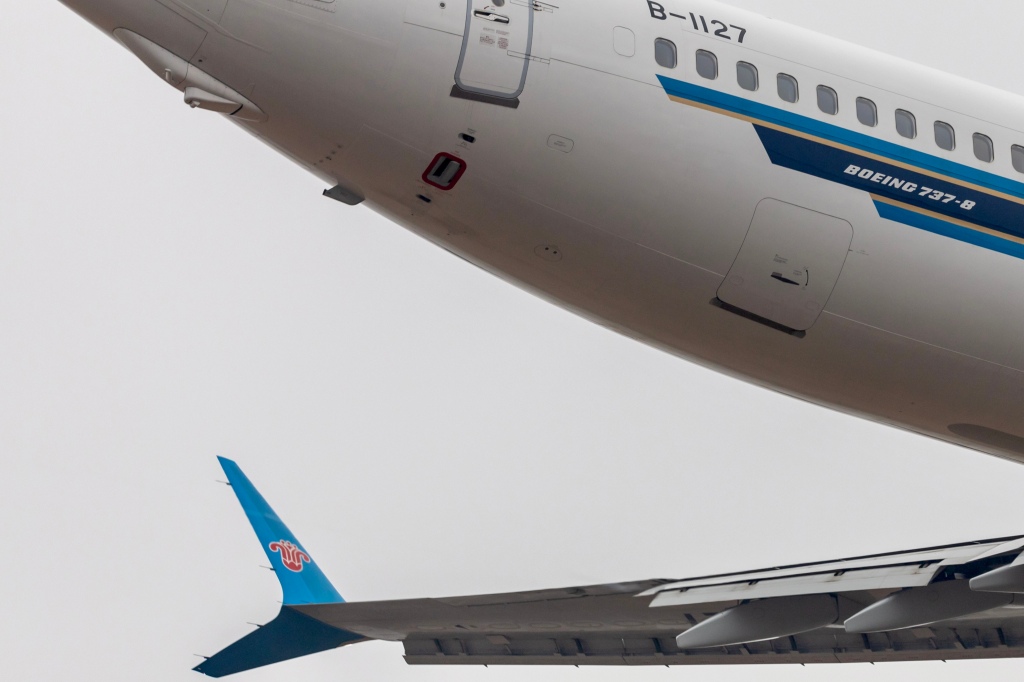Boeing back in court over 737 Max crashes as federal settlement in jeopardy
A federal judge has ordered Boeing to face arraignment on a felony charge related to the crashes of two 737 MAX jetliners, jeopardizing a settlement the company reached with the Department of Justice that victims’ families have opposed.
U.S. District Court Judge Reed O’Connor ordered Boeing to appear on Jan. 26 for arraignment on the felony charge after issuing a narrow ruling in favor of the victims’ families, who have accused the DOJ of cutting a secret deal with Boeing and leaving them out of the negotiations.
O’Connor’s ruling is relatively narrow – while Boeing will appear for an arraignment and the court will hold a hearing at which the families are expected to speak, the judge hasn’t ruled on a motion by a lawyer for the families about whether Boeing’s immunity from prosecution should be revoked.
One of the lawyers representing the victims’ families, Paul Cassell, said the DOJ’s settlement agreement with Boeing was “such a rotten deal” that it “can and should, after hearing from the victims, re-do the deal” to allow Boeing’s prosecution.
Last year, Judge O’Connor ruled that the family members of victims who perished in the Boeing 737 MAX crashes are considered crime victims under federal law and should’ve been consulted before the DOJ reached a settlement with Boeing.
Under the settlement, Boeing paid $2.5 billion to avoid prosecution on a criminal charge of defrauding federal regulators who approved the 737 MAX. The settlement included a $500 million fund to compensate victims’ families and a $243.6 million fine.
Most of the settlement funds went to airlines that weren’t able to use their 737 MAX jets for nearly two years while the aircraft were grounded following the crashes.

The two accidents involving the 737 MAX left dead 346 people. An October 2018 crash in Indonesia killed 189 people on Lion Air Flight 610, and an accident involving Ethiopian Airlines Flight 302 killed all 157 in March 2019.
A faulty sensor in the 737 MAX’s automated flight-control system that Boeing didn’t initially disclose to airlines and pilots was involved in both crashes. The planes’ angle-of-attack sensor gave the pilots an erroneous reading from the anti-stall system and repeatedly forced the plane to nose down, causing them to lose control of the aircrafts.
The Federal Aviation Administration cleared the 737 MAX to return to service in November 2020 following changes to the aircraft’s design and pilots’ training courses. Congress also took action through a 2020 law that required the FAA to ensure that all aircraft it certifies have updated crew-alerting systems that conform to the latest safety standards.
After Boeing ran into delays with FAA approval of the changes, lawmakers included a waiver for Boeing from the 2020 law in the December 2022 omnibus spending but required its 737 MAX 7 jets and the company’s existing fleet of MAX 8 and MAX 9 aircraft to be retrofitted with two fixes. Boeing’s new 737 MAX 10 is being designed and flight tested with the updated system.
The MAX 7 and MAX 10 will need to be certified by the FAA before they can enter service with airlines, which Boeing projects will occur for the MAX 7 in the first few months of 2023 and the MAX 10 late this year.
Boeing declined to comment to FOX Business. The DOJ did not immediately respond to a request for comment.
Read the full article Here


